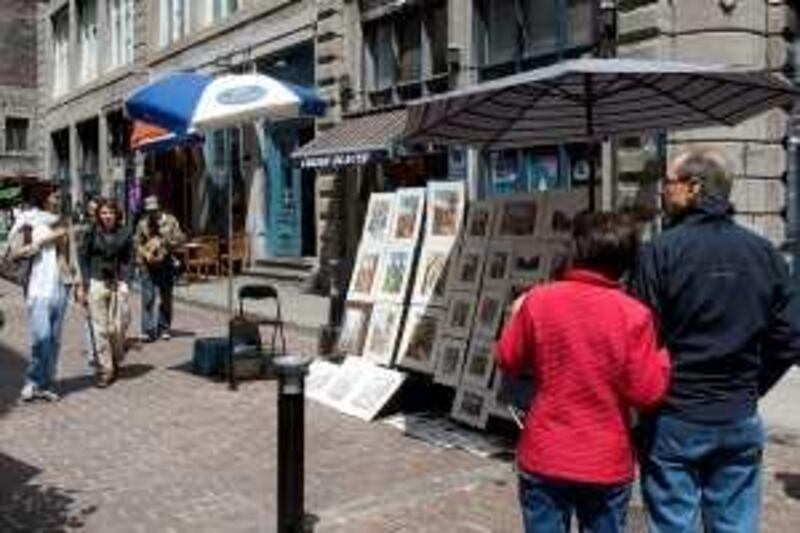TORONTO // After graduating from universities in Halifax and Ottawa, in 2006 Daniela Roberts, a translator and editor, moved to Montreal, Canada's second-largest city, because it boasted efficient public transport, ethnic and linguistic diversity, good food and myriad entertainment. These attributes were supplemented by a reasonable cost of living, Ms Roberts said. "On a very mediocre salary right out of university, I was somehow able to afford the excitement of living in downtown Montreal in the midst of all the action." Yet her love for Montreal is at odds with the results of a May survey published by MoneySense magazine, which ranked Canada's two most populous cities nearer the bottom of its list of most liveable. The magazine's rankings of the best places to live in Canada placed Montreal 100th out of 154 urban areas, below Medicine Hat, Alberta, but above Moose Jaw, Saskatchewan, two small prairie cities. To create the rankings, editors used 24 criteria divided into four major categories: prosperity, affordable housing, weather and lifestyle issues. "This is not a matter of I or one of the other editors walking into a town and saying, 'Boy, I'd like to live here'," said Rob Gerlsbeck, MoneySense's features editor. "We're not taking a subjective approach." The survey's objective is to examine what aspects of a Canadian city would probably matter most to someone who is thinking of moving within the country. According to these metrics, the city of Montreal is a weak performer. MoneySense's survey notes that housing prices are high, as is the unemployment rate, while average household income and discretionary income -what is available after housing, transportation and taxes - are very low. But Jeremy Morris, a doctoral student at Montreal's McGill University and an editor of the Midnight Poutine blog, doubted the efficacy of the survey. It is not that the criteria used are not indicative, he said, only that they provide a fraction of the bigger picture and miss the less quantifiable aspects of a city. "I don't mind that people do these things," Mr Morris said. "I just mind that they try and pass it off as something more objective." He pointed out that MoneySense's survey contained subjective elements in how it weighed its criteria. In the magazine's survey, the unemployment rate, the average house price and time to buy are given much more weight than public transit use or "buzz". "The things that are interesting about Montreal are things that I don't know how you'd ever put on an Excel flow chart," Mr Morris said. Torontonians may be forgiven for thinking the same about their city, which is Canada's largest. Its ranking of 79th on the survey is below such minor cities as Red Deer, Alberta and Swift Current, Saskatchewan and is bound to baffle at least a few people among its 2.6 million residents. Certainly, the magazine's staff, most of whom live in Toronto, are not planning to abandon their homes for the better life in Swift Current, population 16,000. "Toronto offers lots of opportunity, safe streets and a high standard of living, which is why people come here despite the perception that it's expensive," said Carol Wilding, president and chief executive of the Toronto Board of Trade. An April study published by the Board of Trade ranked Toronto fourth out of 21 cities of similar size and stature, including London, Montreal, New York, Paris and Shanghai. According to Ms Wilding, the Board found the opposite to be true in their own measurements of Toronto's economy and labour attractiveness. It found that housing is affordable in Toronto and the air is clean. Ms Wilding urged co-operation between federal, provincial and local governments to address the issues facing all of Canada's big cities. But for Ms Roberts, the recent graduate, magazine surveys and hopes for co-operation and economic growth are mostly irrelevant. Like many Montrealers, her love of the city is informed by the intangible, but no less real, factors that make her city great. "I choose to live in Montreal," she said, "because it offers everything I could ask for in a city and then some." blambert@thenational.ae
The many charms of Medicine Hat?
To the surprise of multicultural Montreal's residents, the small prairie town leads their city on list of most liveable places in Canada.

Editor's picks
More from the national





